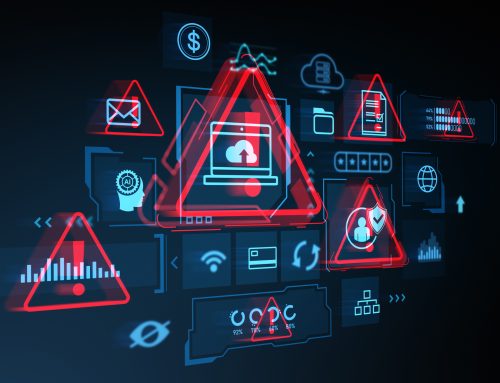In recent years, the manufacturing industry has been on an exciting journey toward digital transformation. With the integration of automation, IoT devices, and smart technologies, manufacturers are achieving levels of efficiency and productivity we couldn’t have imagined a decade ago. But, as manufacturers embrace these digital advancements, there’s a critical challenge that comes along with it: cybersecurity.
Gone are the days when cybersecurity was only the concern of banks or big tech companies. Today, manufacturers are increasingly at risk, facing a wide range of cyber threats that can disrupt production, compromise sensitive data, and cost millions in damages. So, how can manufacturers stay ahead of these threats and secure their operations for the future?
Why Manufacturing is a Target for Cyber Attacks
The manufacturing industry has quickly become a prime target for cybercriminals. Why? For one, manufacturers rely on complex networks of interconnected systems that run around the clock, and any downtime can be catastrophic. Unlike an office environment where employees can work offline for a while, a cyber incident in a manufacturing setting can halt production, potentially causing ripple effects throughout the supply chain.
With the adoption of IoT (Internet of Things) devices, manufacturing facilities are now filled with “smart” machines that communicate with each other to optimize efficiency. While these devices have transformed production processes, they often lack the robust security controls of traditional IT systems, creating new vulnerabilities. Cybercriminals are quick to exploit these weaknesses, especially through ransomware attacks, which have risen dramatically in recent years. According to industry experts, the number of IoT-focused malware attacks has surged, with manufacturing being one of the hardest-hit sectors.
Real-World Consequences of Cyber Incidents in Manufacturing
To put it bluntly, a cyber attack on a manufacturing facility isn’t just an IT problem – it’s a business continuity problem. Imagine an assembly line that suddenly stops, leaving workers idle and production halted. For many manufacturers, even a few hours of downtime can translate into significant financial loss, damage to reputation, and strain on business relationships.
Cyber attacks are increasingly shutting down operations across industries, causing significant disruptions and financial losses. For many companies, recovery can take weeks and cost millions. This threat isn’t limited to large corporations; businesses of all sizes are being impacted, and unfortunately, these incidents are only becoming more common.
Best Practices for Cybersecurity in Manufacturing
So, what can manufacturers do to protect themselves? Here are some practical steps that every manufacturing company can take to strengthen their cybersecurity posture:
- Regular System Updates and Patching: Outdated software is one of the easiest ways for attackers to gain access to your systems. Regular updates and patches are a simple yet essential line of defense.
- Employee Training: Cybersecurity is everyone’s responsibility, from the IT team to the production floor. Educate employees about phishing scams and other common tactics that hackers use to gain entry.
- Network Segmentation: Isolating critical systems from non-critical ones can limit the spread of an attack if it does occur. By segmenting your network, you ensure that even if one area is compromised, it doesn’t jeopardize the entire operation.
- 24/7 Monitoring and Threat Detection: Monitoring your network around the clock can help you detect and respond to threats before they escalate. Having a real-time view of what’s happening across your systems gives you the advantage of early detection.
Enhancing Cybersecurity with N-Able Managed EDR
While taking preventive measures is essential, manufacturers also need a proactive approach to detect and respond to threats. This is where a solution like N-Able Managed Endpoint Detection and Response (EDR) can make a real difference. Designed for businesses that can’t afford downtime, this managed service provides 24/7 monitoring and response. Essentially, it’s like having a cybersecurity specialist watching over your systems at all times, ready to take action the moment a threat is detected.
With Managed EDR, manufacturers get expert response capabilities to neutralize threats in real-time, minimizing damage and preventing costly interruptions. Not only does this protect your operations, but it also helps you meet strict cybersecurity standards and audit requirements, which can be a game-changer for securing cyber insurance.
Preparing for the Future
The path forward for manufacturing is clear: digital transformation is here to stay, and so is the need for robust cybersecurity. As manufacturers continue to embrace innovation, the companies that prioritize cybersecurity will be best positioned to thrive. By taking steps now to safeguard systems, train employees, and invest in proactive solutions like Managed EDR, manufacturers can protect their operations, their data, and their bottom line.
Cybersecurity may feel like a daunting challenge, but with the right approach, it’s a challenge that manufacturers can meet head-on. After all, securing your business isn’t just about protecting against today’s threats; it’s about building resilience for the future.








